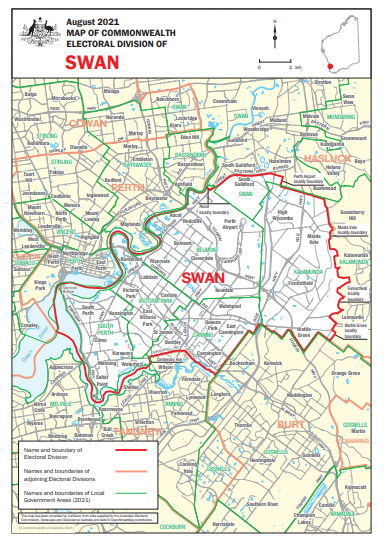|
|
|
|
| Adam Carr's Election Archive
|
Australian federal election, 2022
Division of Swan, Western Australia
Named for: Swan River (named by Dutch explorer Willem de Vlamingh in 1697)
Southern Perth: Belmont, Cannington, Forrestfield, High Wycombe, South Perth
State seats: All of
South Perth and
Victoria Park, parts of
Belmont,
Cannington and
Forrestfield
Local government areas: All of
Belmont,
South Perth and
Victoria Park, parts of
Canning,
Kalamunda and
Swan
Borders with:
Burt,
Hasluck,
Perth and
Tangney
Enrolment at 2019 election: 100,781
Enrolment at 2022 election: 121,335 (+20.4)
1999 republic referendum: No 56.8
2018 same-sex marriage survey: Yes 64.7
Sitting member: Hon Steve Irons (Liberal):
Elected 2007, 2010, 2013, 2016, 2019 (retiring 2022)
2007 Liberal majority over Labor: 0.1%
2010 Liberal majority over Labor: 2.3%
2013 Liberal majority over Labor: 6.5%
2016 Liberal majority over Labor: 3.6%
2019 Liberal majority over Labor: 2.7%
2022 notional Liberal majority over Labor: 3.2%
Liberal two-party vote 1983-2019
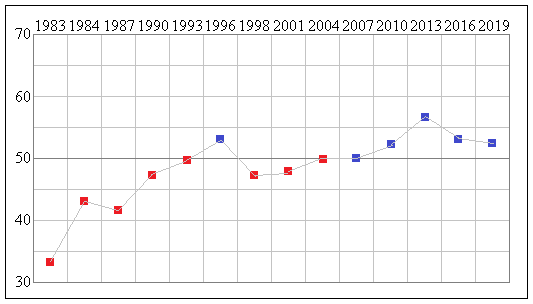
Status: Very marginal Liberal
Best Liberal booths, two-party vote: South Perth North (65.7), South Perth South (65.0),
Como South (64.7), Manning East (64.5), Como (63.9)
Best Labor booths, two-party vote: East Victoria Park (61.7), East Victoria Park South (59.6),
Bentley South (59.4), Kewdale (57.6), Cannington (56.8)
2019 results
Statistics and history
Candidates in ballot-paper order:
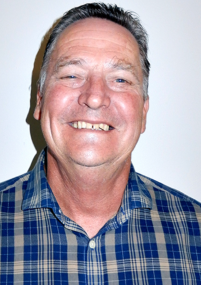 |
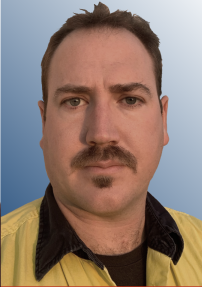 |
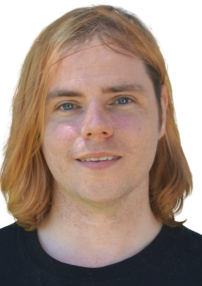 |
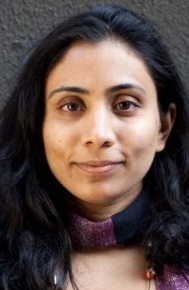 |
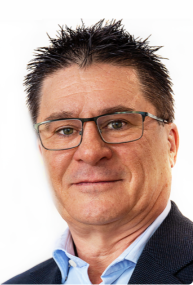 |
1. Paul Hilton
United Australia Party |
2. Matthew Thompson
Liberal Democrats |
3. Timothy Green
Animal Justice Party |
4. Zaneta Mascarenhas
Australian Labor Party |
5. Carl Pallier
Australian Federation Party |
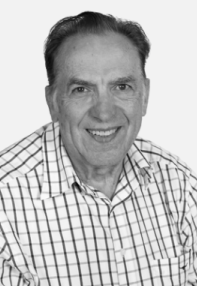 |
 |
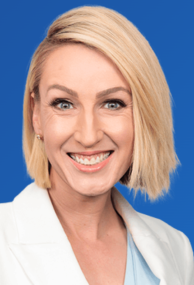 |
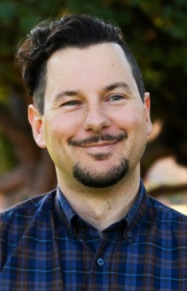 |
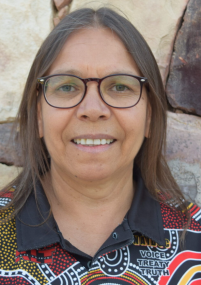 |
6. Rod Bradley
Western Australian Party |
7. Pewter Hallifax
Pauline Hanson's One Nation |
8. Kristy McSweeney
Liberal Party |
9. Clint Uink
Australian Greens |
10. Dena Gower
Australian Christians |
Candidate websites:
Dena Gower
Timothy Green
Paul Hilton
Zaneta Mascarenhas
Matthew Thompson
Clint Uink
Division of Swan
Swan has existed since Federation, but from 1901 to 1949 it was a rural seat based in the upper Swan valley and the Wheat
Belt, with no connection with the current seat. The seat was effectively re-created in 1949, based in the southern
riverside suburbs, and in this form has always been a highly marginal seat, combining as it does strong Liberal areas in
South Perth with Labor strongholds such as Bentley and Victoria Park. Swan has a medium level of median family income and a
fairly high level of people in non English speaking households. It also has a low level of families with dependent
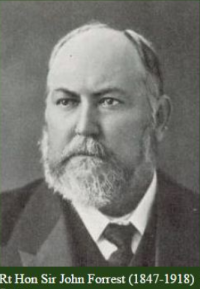 children, so it is not a mortgage belt seat.
children, so it is not a mortgage belt seat.
For its first 18 years Swan was held by
Sir John Forrest, the first Premier of WA, one of the fathers of Federation and Treasurer
in successive non-Labor governments, but thwarted in his ambition to be Prime
Minister.
Kim Beazley, later Deputy Prime Minister, won Swan for Labor in 1980. During the 1980s he built up a strong position in
the seat, but was nearly defeated in 1993 and moved to
Brand in 1996, leaving Swan
to fall to the Liberals.
Kim Wilkie
regained the seat for Labor in 1998, but surprisingly lost it to the Liberals in 2007, the year of Labor's return to
office.
Steve Irons, Liberal MP for Swan since 2007, was a company director before his election. For most his time in Parliament he
has been a largely invisible backbencher. He increased his majority in 2010 and 2013, but suffered swing against him in 2016 2019.
In August 2018 he was appointed an assistant minister, but was dropped in December 2020. In September 2021 he announced that he will retire
in 2022. This leaves the seat very vulnerable to any swing to Labor, although the 2021 redisribution has slightly improved the Liberal position
by extending the seat eastwards into Forrestfield and Maida Vale.
The new Liberal candidate is Kristy McSweeney, a conservative media commentator and former ministerial adviser. The Labor candidate is Zaneta Mascarenhas, an engineer. The Greens candidate
is Clint Uink, whose occupation is not stated.
The state seats in this area produced huge swings to Labor at the 2021 state election. This was
entirely due to state issues and should not be taken as an indicator that similar results
can be expected in WA at a federal election.
Demographics:
Median weekly household income: $1,527 (Australia $1,438)
People over 65: 13.3% (Australia 15.8%)
Australian born: 50.5% (Australia 66.7%)
Ancestry: Chinese 7.2%
Non-English-speaking households: 29.9% (Australia 22.2%)
Catholics 21.8% (Australia 22.6%)
Muslim 5.4%
No religion 30.6% (Australia 29.6%)
University graduates: 28.6% (Australia 22.0%)
Professional and managerial employment: 36.4% (Australia 35.2%)
Employed in manufacturing and construction: 18.8% (Australia 22.9%)
Paying a mortgage: 31.0% (Australia 34.5%)
Renting: 40.2% (Australia 30.9%)
Traditional families: 25.9% (Australia 32.8%)
Back to main page
|
|
 children, so it is not a mortgage belt seat.
children, so it is not a mortgage belt seat. 
